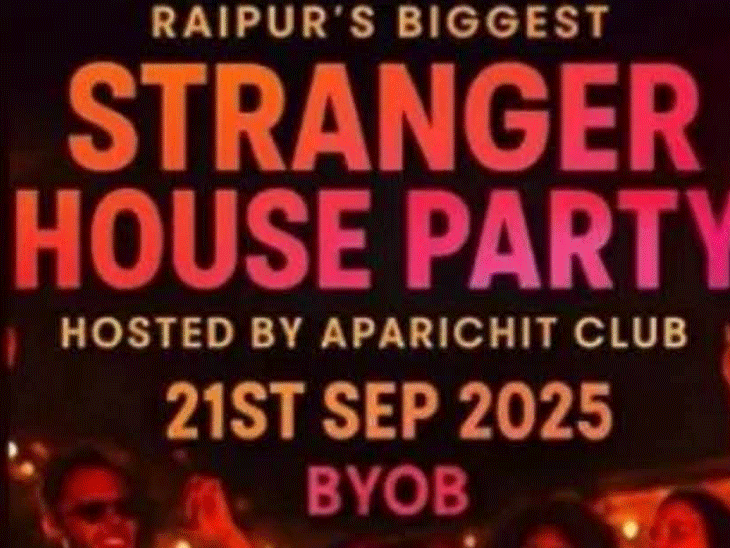New Delhi4 minutes ago
- Copy link
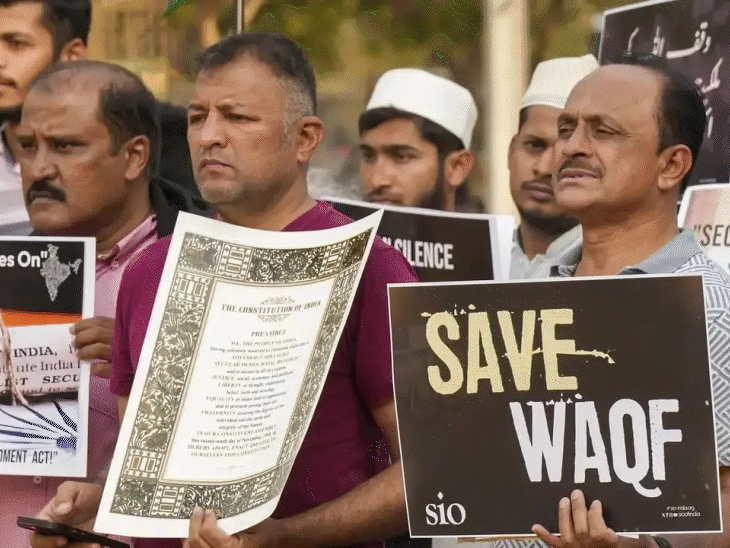
The Supreme Court will pronounce an interim order on the petitions challenging the validity of the Waqf (Amendment) Act on Monday. Earlier on May 22, the court reserved the verdict after three consecutive days of hearing.
In the last hearing, the petitioners called the law against the rights of Muslims and demanded an interim ban. At the same time, the central government had argued in favor of the law.
The debate was around the government’s argument, stating that Waqf is an Islamic concept, but it is not an essential part of religion. Therefore it is not a fundamental right.
Waqf should be seen as a philanthropic donation separate from Islam or it should be considered an integral part of religion. On this, the petitioners ‘counsel Kapil Sibal had said,’ Waqf is dedicated to God for the hereafter. Unlike other religions, Waqf is a donation to God. ‘
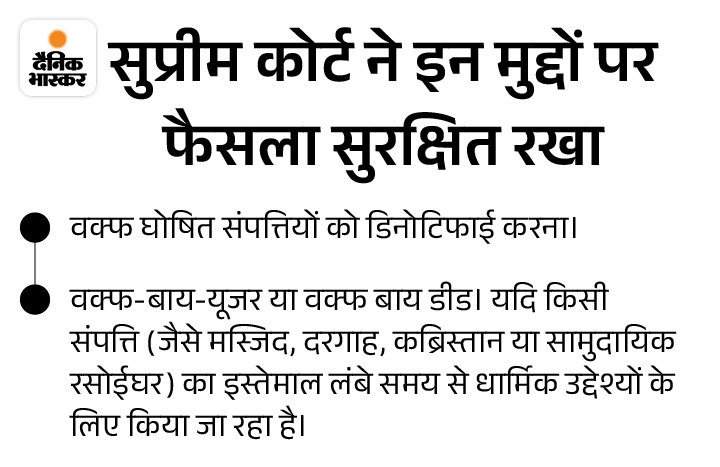
CJI said- religious donation is not limited to Islam only
On this, CJI BR Gawai had said, religious donation is not limited to Islam only. There is also the concept of ‘salvation’ in Hinduism. Donation is also the basic principle of other religions. Just then, Justice Augustine George Christ also agreed and said, “Christianity also wants heaven.”
5 petitions were heard in Supreme Court
The Supreme Court heard 5 main petitions against the Waqf (Amendment) Act. It included a petition by AIMIM MP Asaduddin Owaisi. The bench of CJI BR Gawai and Justice AG Christ heard. Solicitor General (SG) Tushar Mehta from the Center and Kapil Sibal, Abhishek Manu Singhvi and Rajiv Dhawan were advocating on behalf of the petitioners.
What happened in the hearing that lasted for 3 consecutive days …
May 22: SG Tushar Mehta mentioned section 3E
Center SG Tushar Mehta spoke on section 3E on behalf of. It was said that Section 3E prohibits the construction of Waqf on the land under Scheduled Areas. This provision was for the protection of Scheduled Tribes. At the same time, Kapil Sibal had said that historical and constitutional principles have been sidelined in the new law. The government wants to grab Waqf with a non-judicial process.
May 20: Court told Muslim side- bring strong arguments for relief
In the hearing of 20, the bench had said that the Muslim side should strengthen the matter to get interim relief and clarify the arguments. The petitioners said that if any property is under the patronage of the ASI (Archaeological Survey of India), it cannot be a Waqf property.
May 21: Supreme Court heard the arguments of the central government on the second day
In the second day’s hearing, Soulsitter General Tushar Mehta argued in front of the bench headed by CJI Gawai. He said, Waqf by user is not a fundamental right. This was given in 1954 by legislative policy. It can be withdrawn under the Constitution. The government withdrew this right.
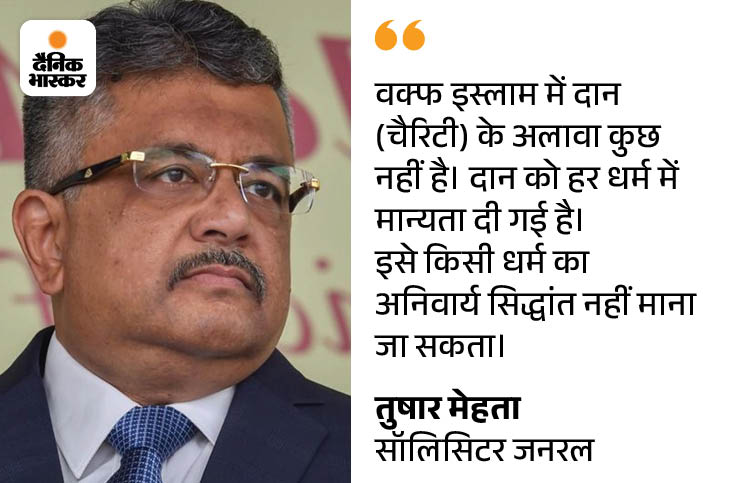
Waqf bill law enacted on 5 April after President’s approval
The Center notified the Waqf (Amendment) Bill, 2025 in April. It was approved by President Draupadi Murmu on 5 April. The bill was passed by the Lok Sabha with the support of 288 members, while 232 MPs were against it.
Congress MP Mohammad Javed, AIMIM chief Asaduddin Owaisi, AAP MLA Amanatullah Khan, Civil Rights Organizations Association for Protection of Civil Rights and Jamiat Ulema-e-Hind, Maulana Arshad Madani have filed separate petitions regarding the new law.
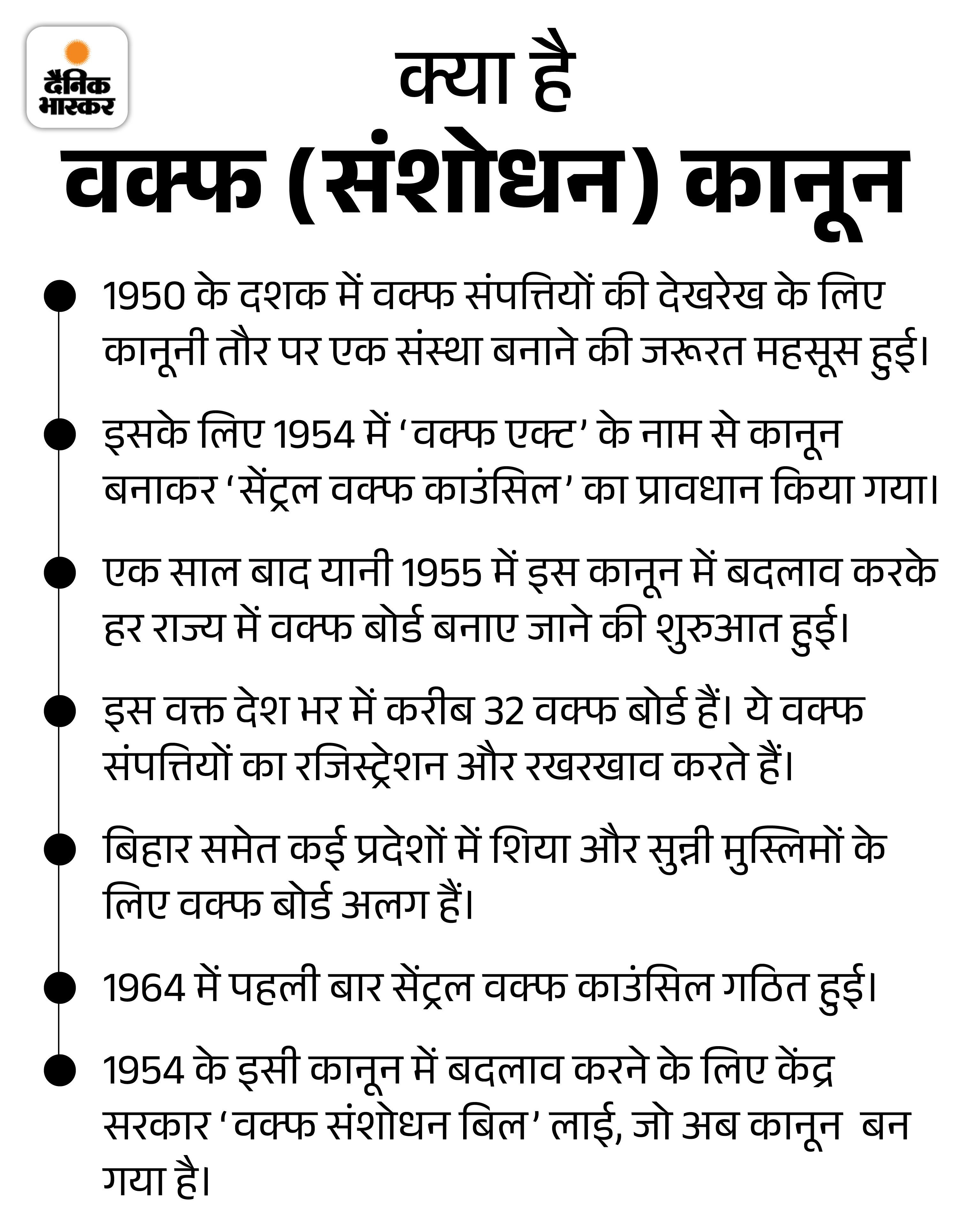
16 There was a 4 -time hearing from April to 15 May, Serial Read-
May 15: The court had said- will consider giving interim relief CJI BR Gawai and Justice AG Christ had asked the Center and the petitioner to present the affidavit by 19 May. Lawyers from both sides had said that judges may need some more time to look at the issues of petitions. The Center also said that as long as the Supreme Court is listening to the case, important provisions of the law will not be applicable, the status quo will remain.
April 25: Center filed a 1300 -page affidavit The Center said in the affidavit that the law is completely constitutional. It has passed from Parliament, so it should not be banned. In the 1332 -page affidavit, the government claimed that since 2013, Waqf properties increased by more than 20 lakh acres. Due to this, many times private and government lands were disputed.
April 17: Solicitor General said- law enacted after millions of suggestions SG Mehta had said that the law passed with Parliament should not be banned without hearing the government. He had said that a new law has been enacted after millions of suggestions. There are many examples in which the villages were grabbed by Waqf. Many private properties were taken to Waqf. The bench said that we are not taking final decisions.
April 16: The Supreme Court gave three instructions to the Center Kapil Sibal, who is arguing against the law, said, ‘We challenge the provision that only Muslims can make Waqf. How can the government say that only those people who have been following Islam for the last 5 years? Not only this, how can the state decide whether I am a Muslim or not and therefore worthy of making Waqf? ‘
Why Waqf law is protesting …




